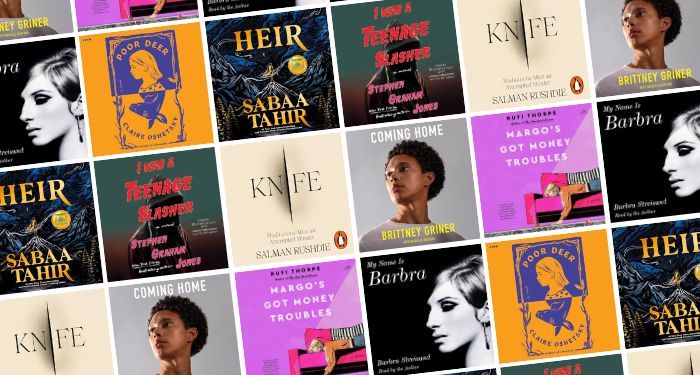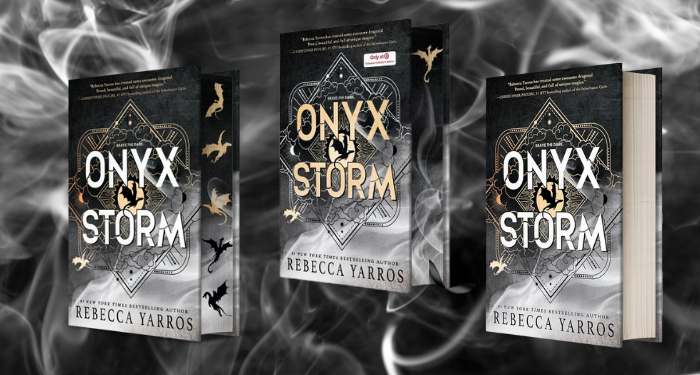Building Your Bookish Mental Health Toolkit
Books are an ideal helpmate when dealing with mental health issues. I don’t mean self-help books, although they can certainly help if you like them. I mean books in general: literary and genre fiction, nonfiction, poetry. To be clear, books aren’t a substitute for professional help. But they can be an addendum: there is a reason bibliotherapy is a thing, after all.
Over the years, I’ve been building my own bookish mental health toolkit. It’s made up of the books I turn to when the world is a little extra hard, when all I feel capable of doing is hiding in my apartment and subsisting on a diet of coffee and whatever frozen food I have on hand. Some of the authors featured in it you might expect: Brené Brown, Luvvie Ajayi Jones, known for writing books meant to help people get out of their own way. But there are also mystery and romance novels, children’s books, and cookbooks, among others.
I’m not writing down a list of the books in my own personal toolkit. For one thing, they’re just that, personal. For another, what helps me might not necessarily help you. The bookish mental health toolkit should be made up of the books that call to you, that soothe and inspire and support you. Since nobody knows you better than you know yourself, that’s for you to choose. But how do you build a bookish mental health toolkit, you ask?
How to build your own bookish mental health toolkit
Make a list of your favorite books
This is a no-brainer. Your favorite books are the ones that blew you away when you read them, the ones that you reread every once in a while, those you recommend to anyone with even marginally similar tastes to yours. If they’re your favorites, it’s because they made you feel something special, or they taught you a lesson you needed to know. These will be the bedrock of your bookish mental health toolkit.
Determine your categories
Not all books will have the same effect. You need to break it down into types that make sense for you. I have:
- Books that feel like a hug: for me, this is mostly made up of children’s books, romance novels, poetry compilations, and a few essay collections. I turn to them when my depression or negative self-talk are at their worst.
- Books that feel like sitting down for coffee with a wise friend: I don’t think that wallowing is a bad thing in and of itself, but there comes a point when you need to snap out of it. When you’re in need of advice, whether emotional or practical, the right books can point you in the right direction — especially when you feel too downtrodden to trust your own decision-making. Here I have mostly essay collections, cookbooks (shoutout to Leanne Brown’s cookbook/essay collection Good Enough) and memoirs.
- Books that help you escape: this is, as the name indicates, all about escapism. Mystery novels, sci-fi and fantasy, historical fiction…anything that gets you to forget yourself. We all need this from time to time. I’d include dystopia but, well, that really doesn’t feel like escapism anymore, does it?
- Books that inspire you to get out there and do good: this category is tangentially related to the last one, insofar as it will (ideally) get you to forget yourself. But the difference is that you shouldn’t be forgetting the outside world along with it: it should inspire you to get out there and try to make the world even a tiny bit better instead. For this category, I have primarily nonfiction about social issues.
- Books that inspire you to make the most of your life: One thing that I’ve known even during my darkest moments is that we only get one life. No matter how hard it gets at times, I don’t want to waste it. When I need a reminder, I turn to biographies, memoirs, and essay collections.
Take notes and keep them in handy files
I don’t think anyone has the time or inclination to do only rereads. So whenever you add a book to your bookish mental health toolkit, make sure to take a few notes: the quotes you want to remember, the lessons you’ve learned, what’s your main takeaway. This way, even when you’re not physically close to your books, you can get a quick boost of strength from your notes.
Remember that the bookish mental health toolkit is personal
My categories and my notes are personal, so yours may look completely different. That’s okay. No two people are the same, and no two readers need the exact same things from their books. I hope that you find precisely what you need for your own toolkit.
Need some inspiration for your bookish mental health toolkit? Read your way into a guide to reading during mental health challenges, great mental health nonfiction for teens, and mental health memoirs.






